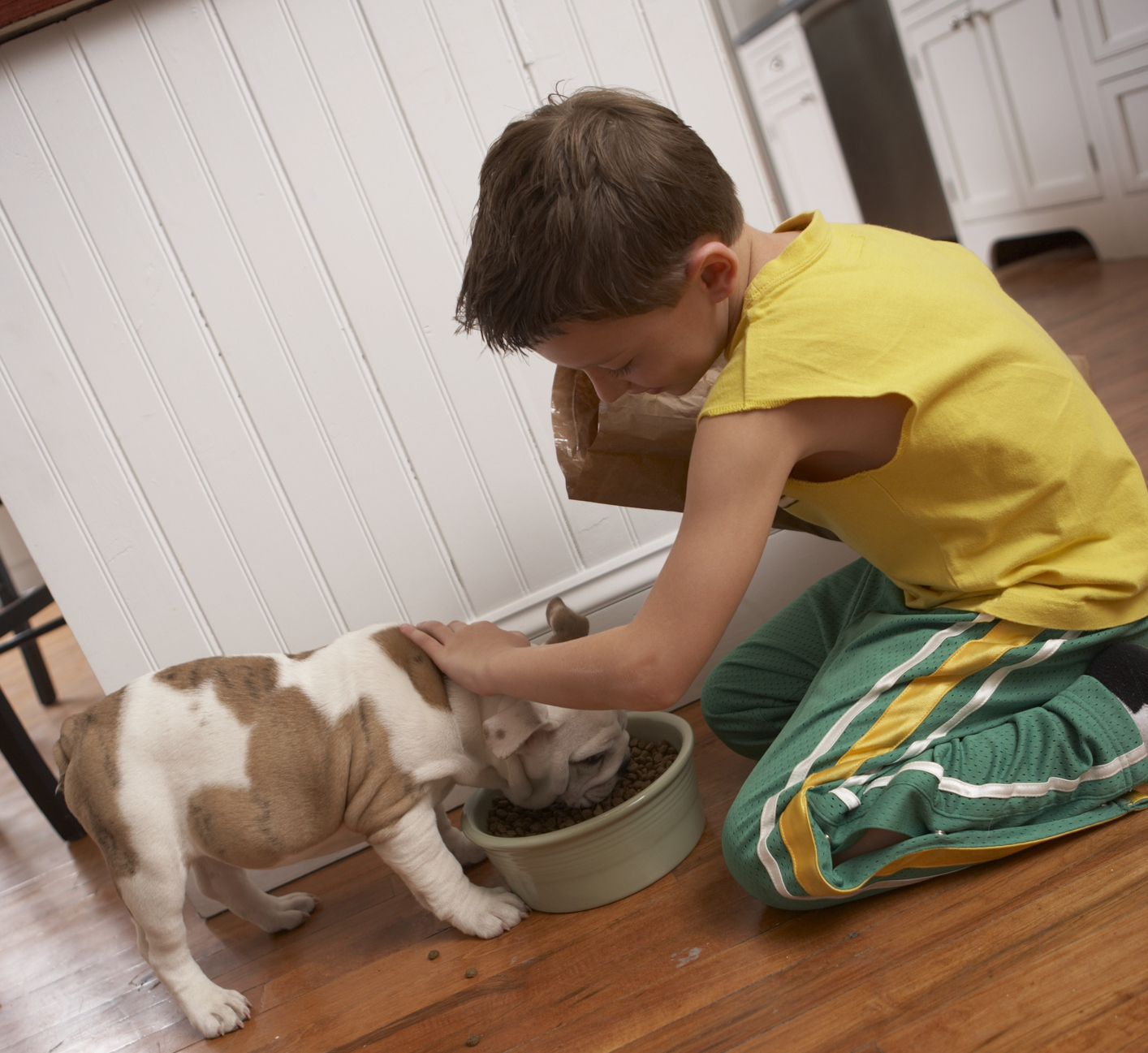As parents, caregivers, and teachers, it's only natural that we want to protect and help our children in order to make their experiences in life as painless and enjoyable as possible. Whether they're 5 months, 5 years, or 15 years old, we want to spare our precious little people from hurt and protect them from difficulties we may have experienced at their age.
Yes, we have the very best of intentions, but when we over-parent, we leave our kids unready for the world and life as adults. If you shelter your child up until they move out into their own apartment or college dorm, they will end up bewildered out in the real world, so it is extremely important that we teach our children the skills to grow into strong, respectful, self-reliant, and successful adults.
Not sure where to start? Here are 15 life skills that I taught my own son by the time he turned 15:

1. Basic financial management
Start with the simple and very necessary skill of budgeting and making personal financial decisions. Once your child is old enough to earn an allowance, they’re old enough to begin picking up financial skills. This is a good time to teach them to wait before they buy something and to know the difference between wants and needs. Teach them to comparison shop when you’re at the store or shopping online together. Teens can start learning about building credit and investing in a Roth IRA from summer jobs.
2. Wake themselves up on time
A child entering high school should be able to wake themselves up, get washed, and dressed in clean clothes — on time. I admit, I'm guilty of being my son's alarm clock, but after several weeks of rushing breakfast and being late for his classes, I put my foot down when I realized all I was teaching him was, "I'll always be here to wake you up, have food ready for you, and get you to class on time, no matter what." Maybe it was OK when he was 7, but 15? Let alone 18? Nope.

3. Taking care of another life
Being responsible for a pet is a wonderful way to teach children how to respect, value, and care for another life, but before leaving a child responsible for animals such as a cat or a dog, it's a good idea to start smaller with something like a goldfish or gerbil. Younger children can begin learning this responsibility by taking care of small plants and regularly watering and repotting when necessary. Learning to get along with and to look out for siblings and friends will help your child grow in this area as well!
4. Personal communication skills
Our children currently live in a world of silent communication. Complete conversations take place over text, email, social media posts, etc., so it's up to us to verbally engage and connect with our kids. Encourage them to practice personal communication skills with friends from school, employees at the supermarket, kids from their extracurricular activities, and others with whom they see “in real life." Teach them to effectively and respectfully articulate their thoughts and feelings and encourage them to practice painting a clear picture of what they are trying to communicate.
5. Advocate for themselves
Kids need to know that they have the right to let their voices be heard, but in the right way. Teach your child how to have a conversation with an authority figure and to advocate for themselves. For example, if they disagree with a grade received at school, encourage them to speak to their teacher respectfully and ask for clarification or a chance to make corrections. Let them know you have confidence in their abilities and offer to practice the conversation with them.
It is also critical to prepare your child to really listen to what the other person says and understand they may not get the outcome they want. This will help teach them that even though not everything in life will always go their way, they can use the information gained from this direct exchange to increase their chances of success in the future — an important ingredient in strengthening their coping and recovery skills.

6. Emotional awareness/intelligence
Teaching your child to understand and manage their emotions, stress, and anxiety is a very necessary skill, which many adults lack. Encouraging your child to accept her emotions, including anger, sadness, disappointment, and frustration, as normal will help her respond to these feelings in a healthier, more effective and confident manner. This skill can very well prevent her from breaking down at the first sign of negative feelings because she will be empowered with the understanding that not feeling happy does not always mean there is something wrong with her, and feeling sad isn't a sign of weakness.
7. Take responsibility for their own thoughts and actions
With finger pointing and victim mentality becoming more common, it is important to help kids understand that they have the power to choose and the responsibility to own up to their own thoughts, feelings, and actions. It is just as important to teach children that they are not responsible for another person's thoughts and actions. They need to know how to set and maintain their personal boundaries.
8. Digital etiquette
We must teach our children internet kindness, selfie regulation, and the dangers of social oversharing and bullying. Help our kids understand that even though communication from behind a computer or smart-phone screen may feel impersonal, they must strive to treat everyone — including themselves — with respect. Respect for others results in kindness. Respect for oneself results in self-worth.

9. Basics of cooking & doing laundry
High school-aged children should be able to prepare simple meals and feed themselves, if necessary. Soups, pastas, omelettes, salads, and sandwiches are some examples of simple meals that can be prepared quickly. If you get hit with the flu and don't have the strength to drag yourself out of bed, you want to know your 15-year-old can make breakfast, pack his lunch, and/or make dinner (and hopefully prepare something yummy for you too)!
As for laundry, I don't mind doing my son's wash, but like the example above, if I'm sick in bed and he urgently needs something washed for the next day, 15 is a mighty good age to take care of that himself. Even your five-year-old can begin helping with the laundry by folding towels and putting their own clothes away until they're old enough to do their own wash.
10. Pitch in
Teach your child how to contribute for the betterment of the whole — whether it's helping a sibling with their chores when they notice they're having a rough day or sorting out clothes they no longer wear and donating them to charity. This helps them get out of the "all about me" mindset and appreciate and value of what they can offer to improve and strengthen causes outside of themselves. It's also a great lesson in kindness and empathy!

11. Talk to strangers
We protect our children by teaching them to not talk to strangers. However, middle school children should be taught how to discern the suspicious strangers from "normal" everyday strangers, to help keep them from being fearful of all people they do not know. For example, with you close-by, allow your child to ask a worker at the grocery store where an item can be found or instruct your child to go to the restaurant counter and ask for extra napkins. This will give them a feel for the type of people they can approach with questions and in case of emergencies.
Just for the record, I still stand by the rule of, "Never open the door to strangers." That one will never change.
12. Forgive and let go
Teach kids to resolve disagreements peacefully by keeping a level head during arguments. Encourage your children to focus on the problem and not the person, to make it easier to control heated emotions.
It's just as important to teach children to apologize when they are wrong. Everyone makes mistakes. There is no shame in asking for forgiveness and in forgiving others. In fact, apologizing and forgiving others takes courage!
Finally, children need to learn that, while forgiveness is an act of compassion, it’s also the key to set themselves free from pain caused by another person, and having the freedom to move forward in a more positive direction. After all, holding a grudge only hurts the one holding it!
13. Show up and work
While showing up is the first step to reaching a goal, children must learn the importance of putting in the work to actually achieve the goal. Remember that unearned rewards set children up to expect a win just for showing up, resulting in entitlement.

14. Time management
Learning how to stay organized, on task, and productive is something everyone will need. Knowing how to effectively manage your time will also help prevent unnecessary stress and anxiety, while helping boost self-confidence and the feeling of accomplishment. Kids need to master this early so they don’t suffer the consequences as adults.
15. Identify and solve problems
Teach children that while life isn’t always easy, they have the knowledge, skills, resources, and support to get them through anything. Show them that mistakes and failures are not absolute, and there is always another way to succeed as long as they keep learning, improving, and trying. When children learn to be proactive in finding a solution, it will help prevent them from falling into victim mentality and greatly increase self-confidence!
For more from Carmen Sakurai, visit her blog Ninja Mom Diaries and her Facebook page.




